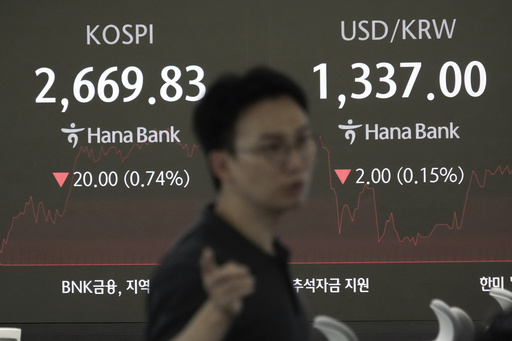
Asian markets saw declines on Thursday as investors turned their focus to upcoming U.S. economic data following Nvidia’s financial report. Nvidia, known for its involvement in artificial intelligence, posted strong earnings that showed a solid profit. Despite this, Nvidia’s stock dropped 2.1% after a year where it had risen by 153%. Nvidia plays a significant role on Wall Street with a market value exceeding $3 trillion.
The Nikkei 225 in Japan fell by 0.4%, while Australia’s S&P/ASX 200 and South Korea’s Kospi each declined by 0.4% and 0.8% respectively. Hong Kong’s Hang Seng slipped 0.5% and the Shanghai Composite dropped by 0.5%. Market sentiment remained cautious even as the White House confirmed plans for a phone call between Chinese President Xi Jinping and U.S. President Joe Biden in the upcoming weeks.
Investors are awaiting the release of the U.S. government’s latest inflation data on Friday, particularly the PCE (personal consumption and expenditures report) for July. Economists anticipate a rise in inflation to 2.6% from 2.5% in June, after reaching 7.1% earlier in the year. The Federal Reserve’s preferred inflation measure, the PCE, has been gradually moving back towards the target of 2% following interest rate hikes by the Fed.
Stocks on Wall Street closed lower, with the S&P 500 down 0.6%, the Dow Jones falling 0.4%, and the Nasdaq composite dropping 1.1%. Technology companies like Nvidia, Apple, Microsoft, and Amazon saw declines, overshadowing gains in other sectors. Treasury yields were mixed, with the 10-year Treasury yield rising slightly.
In energy markets, benchmark U.S. crude and Brent crude both saw slight gains. Currency trading saw the U.S. dollar strengthen against the Japanese yen and the euro. Investors are carefully monitoring economic data and geopolitical developments for insights into market movements in the coming days.
